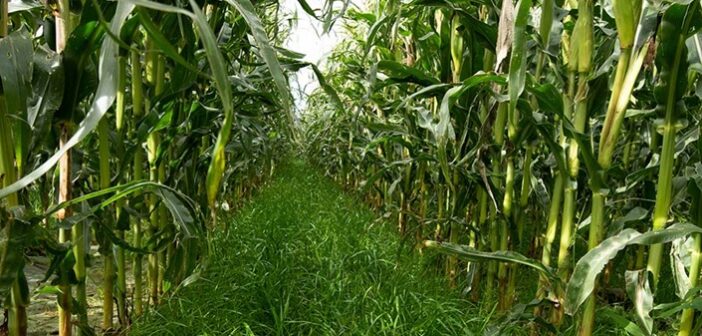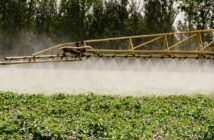Maize under-sowing trials at Severn Trent Water’s 2,000ha biogas farm in Nottinghamshire have achieved 50t/ha yields this harvest, while improving soil health, nutrient management, and water quality.
Experimenting with under-sowing maize in his 35 years working at Stoke Bardolph farm, John Jackson, farm manager, explains how these results help counteract the scrutiny facing maize for its environmental impact.
“Under-sowing a fast-rooting Westerwold ryegrass mix has helped us create a stronger soil structure on our maize fields, minimising soil damage at harvest and improving nutrient management for the next crop – especially on lighter soils,” says Mr Jackson.
“We’ve seen reduced erosion in the trial plots, which also helps prevent run-off and nitrate leaching, therefore protecting local watercourses – with no penalty for maize yields.”
Mr Jackson and his team commit to harvesting in September, when soils are more robust. He therefore advises aiming to drill in April.
“Whether you’re growing maize for grain, forage or biogas, as long as the soil temperature is reaching 8-10oC for four to five consecutive days and seedbed conditions are good, you can get drilling,” he says.
“We drilled our maize in mid-April, with the ryegrass under-sown seven weeks later, in mid-July, when maize was at the 4-5 leaf stage and well-established.”
He encourages others to drill the grass seed, rather than broadcasting it, to help minimise crop competition.
“Ground contact is key – so the under-sowing was done at the same drilling width as the maize. If you go any wider, it results in drift – you need to ensure maize remains the main crop,” says Mr Jackson.
He encourages other farmers to under-sow their next maize crop, and recommends exploring the Severn Trent funding options on offer to support the investment.
“For farmers in a priority Severn Trent catchment area, match-funding is available through STEPS (Severn Trent Environmental Protection Scheme). There are numerous options from under-sowing to cover crops and you’ll have access to a local agricultural adviser for support,” he says.




